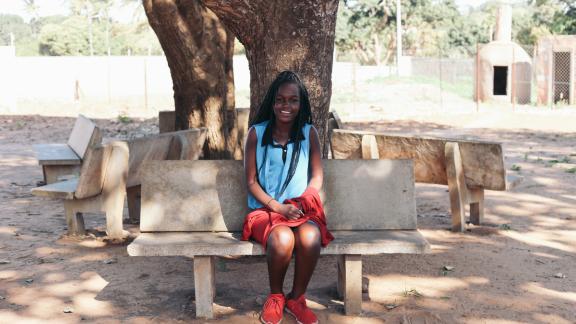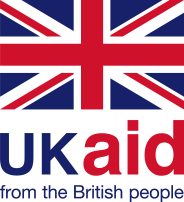
About WISH
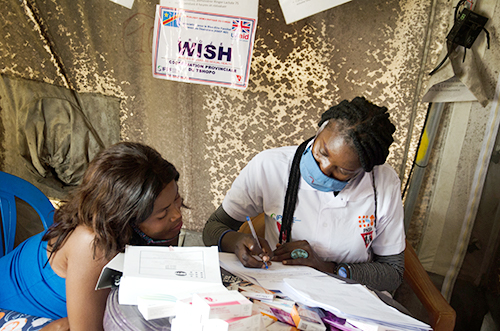
The Women’s Integrated Sexual Health (WISH) programme, under the strategy of ‘Leave No One Behind’, offers quality integrated and inclusive family planning and sexual and reproductive health services - to marginalized and hard to reach populations: the poor, youth under 20 and people living with a disability.
WISH is a flagship programme to scale up support to integrated sexual and reproductive health and rights (SRHR) services in countries across Africa and Asia by 2021. Funded by the UK Foreign Commonwealth and Development Office (FCDO). It represents 20% of the UK Government Family Planning 2020 commitments.
There are two ‘Lots’ implemented through different consortium structures. The International Planned Parenthood Federation (IPPF) leads the Lot 2 WISH programme through 10 Member Associations and five consortium partners in 15 countries. IPPF WISH Lot 1 is a subcontract within a consortium led by Marie Stopes International in six countries through its Member Associations in the Africa and Arab World region.
IPPF uses the pioneering WISH Cluster Plus model, that brings together specialist sexual and reproductive health centres within a close radius, using poverty maps and client data to offer services to those who most need it. The clusters work in partnerships with government and private clinics, community-based distributors and faith-based organizations and leaders. It draws on IPPF’s experience and lessons learned from implementing, adapting, and refining a Cluster Model pilot in Nigeria (2009). The WISH model works with different formations of clusters and service delivery partners for services tailored to community needs. There are a total 3500 service delivery points in the IPPF supported WISH global programmes.
Millions of young people are denied access to non-judgmental, comprehensive sexual and reproductive health services, information and education. In low- and middle-income countries complications of pregnancy and childbirth are the leading cause of death in young women aged 15-19 years. The WISH programme has a specific focus to expand access to youth-friendly services and education so young people can take charge of their lives.
Our partners
The WISH Lot 2 Consortium, led by IPPF, brings together service delivery with experts in the field of health systems strengthening and advocacy, social behaviour change communications, disability inclusion and humanitarian expertise. Partners: Development Media International (DMI), Humanity and Inclusion UK (HI), International Rescue Committee (IRC), Marie Stopes International (MSI), Options Consultancy Services (Options).
The WISH Lot 1 Consortium led by Marie Stopes International builds on the technical and service delivery expertise through a range of partners - IPPF, DKT, Ipas, THINKPLACE, Options and Leonard Cheshire Disability.
Our work
Afghanistan
WISH Afghanistan (Lot 2) is implemented by Marie Stopes Afghanistan and serves 11 provinces with a reach via 22 static clinics, 14 Public sites and 8 MSIA satellite clinics and 9 community based distributors (MS Ladies).The programme supports clinics and midwives in some of the most insecure and remote areas in the country. WISH (Lot2) is building the capacity of public sector providers to provide wider contraceptive mix and post abortion care. MSI/A is advocating for inclusive SRHR efforts with Ministry and other stakeholders on the national strategic plan for disability and rehabilitation. MSI/A is piloting Sayana Press injectable contraception in rural areas of Afghanistan to expand women’s choice to a wider array of contraceptive methods to include self-injectable contraceptives and empower them to take greater control of their fertility. The WISH Afghanistan programme has a specific focus to work on challenging norms by engaging men and boys through health and rights communication and awareness sessions to garner their support on increasing access to family planning.
Bangladesh
WISH Bangladesh (Lot 2) is implemented by partners -MSI Bangladesh, Options and Humanity Inclusion in eight divisions across the country through 159 Static sites all public sites, and 15 outreach teams. WISH is working to strengthen Public Sector health providers for LARC and permanent methods at government facilities. The programme focuses on districts with high SRHR needs in hard-to-reach areas and is building capacity of local providers. Outreach targets areas are identified through poverty mapping. HI is working to ensure inclusion of FP/SRHR for people with disabilities. The partners have formed an Accountability Network-Health Bangladesh Sexual and Reproductive Health Network (HBSN) to identify potential policy barriers to access family planning services and to engage the government and civil society for reforming policies and creating an enabling environment. The WISH programme is focused to tackle high adolescent fertility rates and reach youth with family planning and SRH services.
Burundi
WISH Burundi (Lot 2) is implemented by IPPF Member l’Association Burundaise pour le Bien-Etre Familial (ABUBEF) serving four provinces across the country with a reach of 84 static clinics (65 public sites, 19 private sites) and 4 outreach teams. Continued integrated service delivery, is serving to support high rates of gender based violence. Continued use of the poverty heat maps and CEI data to scale up services to people living in poverty. During outreaches, CHWs target youth under 20 who have dropped out of school due to early marriage or unwanted pregnancy. WISH activities encourage men to accompany their wives for SRH services by giving priority to couples seeking services and address stigma at community level, targeting religious and community leaders.
Cameroon
WISH (Lot 1) Cameroon is implemented by IPPF Member Cameroon National Association for Family Welfare (CAMNAFAW) in the Central and Western regions with a reach of 19 Static Sites, 12 Private sites (including 6 MA owned clinics), 7 public sites and 3 CBDs. The programme offers family planning services with demand generation for modern methods, conducting mobile clinics in landlocked, rural or underserved areas and building capacity of key actors through training health providers in the provision of adolescent- and youth-friendly services. Further support is provided to train Community Health Workers, peer educators in academia, as well as health staff on stock management and social franchising. CAMNAFAW works closely community based organizations who prioritise sensitization of people living with a disability on family planning, porvide short acting contraceptives and refer clients wishing to obtain FP methods or other SRHR services to partner health facilities in their areas.
Chad
WISH Chad (Lot1) is implemented by IPPF Member, Association Tchadienne pour le Bien-Être Familial (ASTBEF). Operating in four regions serving populations in high density areas with high rates of people living in poverty with a reach of 57 Static Sites, including 9 Private sites (including 6 MA owned clinics) and 48 public sites. ASTBEF tailors services for refugees/returnees in Western Logone, Eastern Logone, Middle Chari and Ouaddaï. ASTBEF trains Community Health Workers (CHWS)from associations of persons living with disabilities, to build a strong team of sexual and reproductive health advocates representative of the populations WISH intends to serve. The CHWs also serve as ASTBEF advocates and representatives at the national level to advocate for disability inclusion across public sector health services.
Côte d'Ivoire
WISH Cote D'Ivoire (Lot 1) is implemented by IPPF Member Association, AIBEF in three provinces in the country with a reach of 15 Static Sites: 13 public sites and 2 MA sites. AIBEF is providing integrated SRH services in areas that had never been served before. The programme is training providers (nurses and midwives) and Community Health Workers to strengthen their skills on integrated sexual and reproductive healthcare. AIBEF is strengthening public sector services by working in close collaboration with the Ministry of Health in Côte d'Ivoire, by strengthening the quality and number of public sector activities. WISH is increasing the provision of additional contraceptives to public sector health centres in Sud-Comoé and Abidjan centres. AIBEF enhances work on disability inclusion for young people. Supporting peer educators to increase awareness of SRHR through the CSE curriculum and by raising awareness on the needs of vulnerable populations such as youth and people living with disabilities.
DRC
WISH DRC (Lot 1) is implemented through a range of partners -Service delivery- IPPF Member - Association pour le Bien-Etre Familial/Naissances Désirables(ABEF-ND) and Marie Stopes. ABEF-ND has a reach of 50 Static Sites 23 Private sites, 27 public sites,5 Outreach teams and 196 CBD. They serve through their facilities and reinforces services in some Public and private facilities in Kongo Central, Kwilu, Tshopo and Kinshasa. Marie Stopes serve through MSI Ladies (clinical community providers) and Mobile clinics, to complement the offer in public/private facilities, in close collaboration with Health Zones management. These approaches are complementary to traditional health strengthening system and contribute to build an enabling environment at first, as well as building access to services.
Ethiopia
WISH Ethiopia (Lot 2) is implemented by a range of partners - service delivery -IPPF Member Family Guidance Association Ethiopia (FGAE), Marie Stopes International Ethiopia (MSIE), and International Rescue Committee(IRC) and technical partners (Humanity Inclusion and Development Media International) across seven provinces in the country. FGAE coordinates “clusters” of public, private for-profit, and private not-for-profit providers in areas of high unmet need, and supports mobile outreach services and work with Health Extension Workers and health development armies to provide counselling in hard to reach areas. The programme works through 722 static clinics, 464 Public sites, 258 Private sites, and 3 Outreach teams. IRC provides integrated quality FP/SRH services in refugee camps and public health centres. MSE continues to provide services to hard-to-reach populations through their extensive network of socially franchised clinics; and via mobile outreach teams. Humanity Inclusion support and strengthen SRH/FP service delivery in partner clinics to ensure that services are accessible for people with disabilities. Development Media International (DMI), is broadcasting social behaviour change communication messages to increase demand for services. Community mobilizers/promotors support FGAE, MSIE and IRC assisted facilities create demand for SRHR and raise awareness about availability of services. WISH Ethiopia has a strong focus on reaching young people (below 20) through mobile clinics, youth centres and MSIE's hotline (call centre).
Madagascar
WISH Madagascar (Lot 2) covers 22 regions of the country by a range of partners - service delivery - Marie Stopes Madagascar (MSM), and technical partners -Humanity Inclusion (HI) and Development Media International (DMI) and Options. MSM works at the national level to deliver FP services and other integrated services such as HIV and STI services, cervical cancer related services (testing and screening) through 92 static clinics (56 public and 36 private), 15 outreach teams, 23 MS ladies and 67 single provider operators. DMI supports Marie Stopes Madagascar activities, through behaviour change communication campaigns. HI’s activities increase access to FP services for people with disabilities through WISH and Options is supporting national sustainability opportunities to strengthen the health system and domestic funding for family planning. In 2019, Consortium members combined their efforts to advance advocacy activities related to the de-taxation of FP commodities which was adopted and validated by the Malagasy government.
Malawi
WISH Malawi (Lot 2) is implemented in Central Region by IPPF Member Family Planning Association of Malawi (FPAM) for service delivery with a reach of 56 Static sites (47 Public sites, 9 Private sites including 2 MA owned sites), and 4 outreach teams. WISH is implemented in Lilongwe and Kasungu because of the high unmet need that exists, especially in the areas which are hard to reach and receive few health services. FPAM is the main service provider for SRH in Kasungu, while Lilongwe is a very large district and community Health Workers (CHWs) for both FPAM and government are links to service delivery through demand creations and provision of short acting contraceptive methods. Technical partners for WISH Malawi are Options and Development Media International (DMI). Options enhances efforts to ensure public sector investment for sexual and reproductive health and family planning improves and works closely with government officials, as well as civil society groups, to support budget tracking exercises to help ensure government account for their financial commitments. DMI works to enhance social change through targeted mass media campaigns. Unmarried youth (particularly girls) in Malawi face barriers in accessing SRHR services as there is a perception that they do not have a need for them. WISH is supporting training of government providers on youth friendly services and has is rolling out targeted youth outreaches to reach unmarried women.
Mauritania
WISH Mauritania (Lot 1) is implemented by IPPF Member, Mauritanian Association for the Promotion of the Family (AMPF) and operates in eight regions with a strong focus on young people under 20 years of age in marginalized areas, including married and unmarried women and men of all ages. AMPF has a reach of 53 Static Sites,22 Private sites (including 4 MA owned clinics),31 public sites and 3 Outreach teams. AMPF is a member of a coalition to advance the fight against gender based violence (GBV) in Mauritania and is working on a law criminalizing female genital mutilation and GBV. AMPF is working in humanitarian settings like the M'berra camp, which welcomes Malian refugees, providing services to highly vulnerable women and girls. Services have been established in remote locations, increasing access to essential SRHR services for Women and girls therefore leaving no one behind.
Mozambique
WISH Mozambique, (Lot 2) is implemented in 4 provinces across the country by IPPF Member Associação Moçambicana para Desevolvimento da Família (AMODEFA) through integrated package of SRHR services through 4 MA owned clinics, and also by supporting and strengthening the delivery of services in public sector in 93 facilities. Development Media International (DMI) is working on broadcasting a mass media campaign to generate demand. Humanity Inclusion is providing some technical support to AMODEFA and DMI to ensure disability inclusivity in all activities.
Nigeria
WISH Nigeria (Lot 1) is operating in four states through IPPF Member, Planned Parenthood Federation of Nigeria(PPFN) with a reach of 16 Static Sites, 4 Outreach teams and 5 CBDs. Marie Stopes International Organisation Nigeria (MSION) also works on service delivery. WISH Nigeria have jointly developed a public and private SRH service delivery and individual and community engagement approach. MSION and PPFN deliver family planning services in Northern states through Outreach teams, MS Ladies, Centres, social franchises, and through Social Marketing in the southern states. Options Consultancy leads the approach to governance, accountability and financing, as well as strengthening civil society, supported by Ipas. Thinkplace Kenya is working on innovative ways to address barriers to family planning uptake among young women through human centred design research. PPFN reach youths, women and men through peer educators and social media. Access to FP can be lifesaving by enabling women and girls to avoid complications of unsafe abortion and childbirth related mortality and morbidity.
Pakistan
WISH Pakistan (Lot 2) is implemented through service delivery partner, IPPF Member Rahnuma Family Planning Association of Pakistan (R-FPAP) and technical partners - Options and Humanity Inclusion (HI). R-FPAP operates 10 clusters across the country covering five provinces including Khyber Pakhtunkhwa and Balochistan through an enhanced outreach service delivery approach. WISH Pakistan operates with a reach of 40 MA owned facilities, 115 MoH facilities, 750 private associated health facilities and 1500 CBDs (including community health workers, pharmacists, grocery shop keepers). The programme is supporting the poorest in obtaining access to SRH services through R-FPAP’s non refusal policy and transport vouchers. HI focuses on inclusive SRH service delivery for people living with Disability (PLWD) and building the rights of PLWD to access and fulfil their SRHR. WISH helps drive change through the enabling environment workstream utilizing the technical expertise of Options, and the knowledge and experience of R-FPAP. In Pakistan there is a general reluctance to discuss SRHR matters openly. This is particularly true with regard to youth, who are assumed to not need SRH services. The WISH programme has established youth resource centres to provide SRHR information to youth and a helpline aimed specifically at youth as well as youth focussed outreaches. Community dialogues are also conducted with support from community leaders.
Somalia
WISH Somalia (Lot 2) is implemented with service delivery partner- International Rescue Committee (IRC)in Banaadir and Galguduud regions, through 9 Statics sites and 9 Public sites. The services in these regions serve a large population of women and girls who lack access to contraceptive services. The network of private facilities in Banaadir provide a platform to increase service delivery channels through which women and girls access services. Initially provision of LARCs was very limited and short-term methods took the toll for family planning services due to lack of skilled health workers. To improve method choice, IRC increased the capacity building of family planning providers from private/public and IRC health facilities (LARC) and community health workers for short term methods to increase uptake of long acting contraceptive options. WISH Somalia works jointly with the Federal Ministry of health team, District Health Management teams (DHMT) for various districts in Banaadir and Galguduud.
South Sudan
WISH (Lot 2) in South Sudan is delivered through a consortium led by International Rescue Committee (IRC) and its partners, IPPF Member Reproductive Health Association of South Sudan (RHASS) and Humanity & Inclusion (HI) in five states. WISH South Sudan operates through 44 Static sites, (36 Public sites, 9 Private sites), and 27 outreach teams for a range of facility , community and outreach activities. Working closely with key national stakeholders including the Ministry of health, civil service organisations (CSOs),Disabled people organizations (DPOs ). WISH South Sudan trains community health workers to provide health promotion and select service delivery through distribution of oral contraceptives and condoms as well as referrals for LARCs (long acting reversible contraceptives) to the nearest health facilities. The WISH South Sudan programme is playing a crucial role in driving the FP agenda by actively participating in national coordination forums and contributing to policy discussions, including on mainstreaming disability inclusiveness. The project is focussed on strengthening services delivery provision for youth and people living with disability and enhancing youth participation through community engagement activities.
Sudan
WISH Sudan (Lot 2) is implemented by IPPF Member, Sudan Family Planning Association (SFPA) through 8 clusters in five regions with a reach through 505 Static sites, 212 Public sites, 293 Private sites, 16 outreach teams and 1240 Community Based Distributors. The WISH clusters were selected due to a high proportion of the population living in extreme poverty. SFPA works through clusters of public, private for-profit, and private not-for-profit providers in areas of high unmet need to deliver quality, integrated, and coordinated care. In addition, SFPA supports mobile outreach services and work with Community Health Workers to provide counselling and deliver health and rights messages in hard to reach areas. Sudan has a large youth population and high prevalence of child marriage and Female Genital Mutilation. The WISH programme is working through a peer educator and youth network approach to link young people to SFPA's youth friendly clinics. The programme is engaging community and religious leaders for support.
Tanzania
WISH Tanzania (Lot 2) is implemented by a range of partners - service delivery -IPPF Member, Chama cha Uzazi na Malezi Bora Tanzania (UMATI) and Marie Stopes Tanzania, and technical partners (Option and DMI) across 11 regions of the country. The programme operates through 218 Static (public) sites and 218 Community Based Distributors (one CBD attached to each static site) and 28 outreach teams/sites. WISH is expanding youth reach (under 20) through youth-focused weekend clinics and events that integrated SRH education and services with edutainment and vocational skills activities. UMATI is intensifying operations in areas through poverty heat maps that adapt approaches to higher populations of people living in poverty.
Uganda
WISH Uganda (Lot 2) is implemented by a range of partners - service delivery -IPPF Member, Reproductive Health Uganda, (RHU) and Marie Stopes Uganda and International Rescue Committee and technical partners (HI, Options and DMI) across four regions of the country. Operating through 307 static sites, 220 Public Sites, 87 Private sites, 46 Outreach teams and 430 Community Based Distributors and in refugee camps. RHU has established district-level clusters in the Eastern, Northern and Central regions, delivering services across all channels. IRC is supporting some of the most marginalised and vulnerable populations living in refugee camps in Northern Uganda. MSI is undertaking extensive service delivery through outreach teams primarily located in South Western districts, along with some in the northeast. HI is capacity building through training on disability-inclusive SRHR services, by targeting consortium service providers and the health facilities. DMI runs targeted mass media campaigns to reach target audiences with messages about family planning and sexual and reproductive health, directing them to services and creating an enabling environment for women to access them. Options is assisting WISH Uganda through technical support to the government to meet its financial commitments and track progress on key financial and policy commitments.
Zambia
WISH Zambia (Lot 2) is being implemented through a range of partners - service delivery through IPPF Member, Planned Parenthood Association Zambia (PPAZ)and Marie Stopes Zambia (MSZ) and technical partners- Development Media International( DMI) and Options across three provinces in the country. Operating through 233 Static Sites, 214 Public Sites, 19 Private sites, 26 Outreach teams and 90 CBDs. MSZ serves via Outreach, Centres and Social Marketing channels to provide sexual and reproductive health (SRH) services while PPAZ serves through Centres and associated clinics to reach clients with services as well as outreach. Both PPAZ and MSZ as service organisations work with local Disability Associations to identify ways to collaborate in reaching this neglected population with SRHR services. DMI brings its expertise in using mass media to influence behaviour change, an approach that has not existed in Zambia for many years. Options is leading WISH Uganda's national ownership activities in in close collaboration with MSZ, PPAZ and DMI, to create enabling policy and planning environments and increase public sector SRHR investments.
Zimbabwe
WISH Zimbabwe (Lot 2) is implemented by Population Services Zimbabwe (PSZ) in five provinces in the country. The WISH programmes serves through 50 Static sites, 50 Public sites, and 6 outreach teams. Outreach teams offer a variety of FP methods, primarily long-term and reversible contraception (LARC) but also permanent methods (PMs) and short- term contraception methods like Depo-Provera, oral contraceptive pills and condoms which provide clients with a wide array of methods to choose from. In addition, the teams offer screening and referrals for sexually transmitted infections (STIs) and will soon be offering cervical cancer screening and prevention (CCSP) services. PSZ offers a contact centre that continues to be pivotal in providing information and referral to potential clients who call for assistance. WISH Zimbabwe is supporting public sector providers (mostly nurses), who primarily offer LARCs and short-term methods and refer clients interested in permanent methods (PMs).
WISH results progress (Lot 1 & Lot 2)
Couple years of protection*
WISH2ACTION Global Results Video 2022
Watch our achievements up to 2022 in this video:
Our impact
Democratic Republic of
the Congo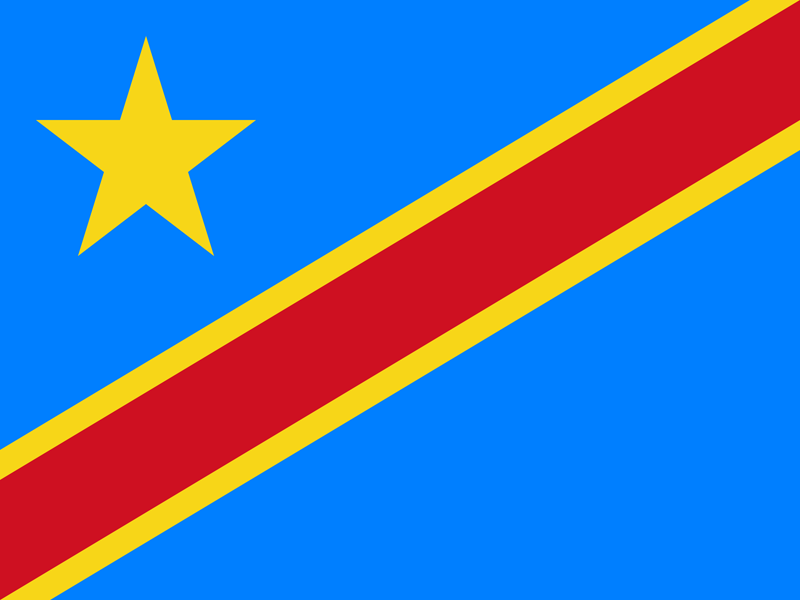
After her parents divorced, the family dissolved, and Ruth found herself in Pakadjuma where she rented a small house. "My boyfriend helps me pay the rent," she says. She thought she would continue with school but could not afford it. After a few years of a relationship, Ruth became pregnant, and explains," it was late to get an abortion, and I didn't want to put my life in danger."
Pakistan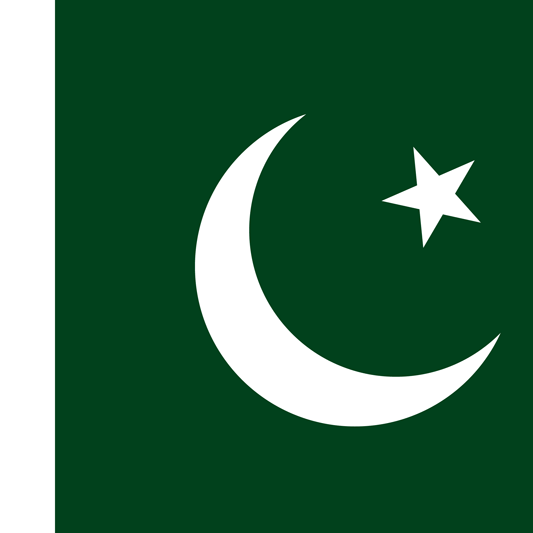
Across the country – Rahnuma-FPAP works through cluster networks. A pioneering model that brings together public and private specialist sexual and reproductive and health centers within a close radius referral network to ensure women and girls can receive life-changing care. Networks use poverty data mapping to ensure that services are targeted to areas where the population needs them most.
Mozambique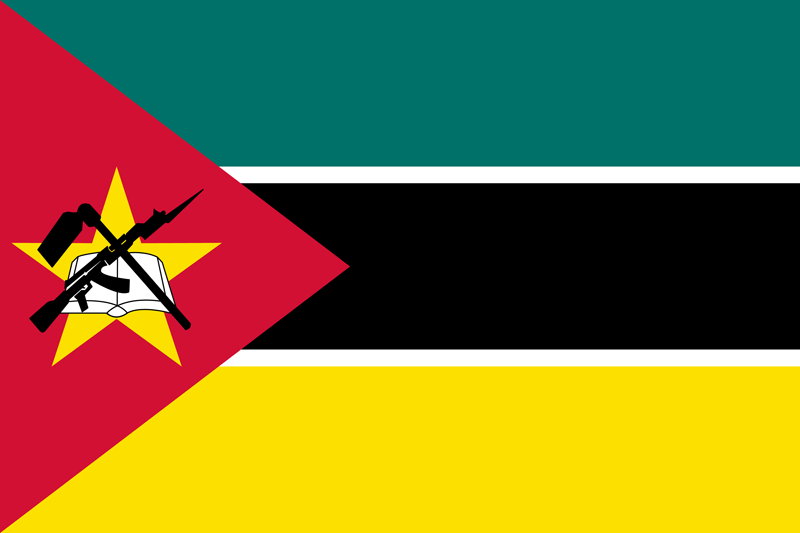
Five years ago, when Arnilda Simango was 13, she started dating a boy from her community, outside Xai-Xai City, in Gaza Province in southern Mozambique. A year later she got pregnant, at his insistence, and he left her shortly after the baby was born. AMODEFA’s youth services offered her counselling and advice throughout her pregnancy and became the network through which she made new friends. Today, at the age of 18, she is raising her son, with help from her mother and plans to return to school.
Malawi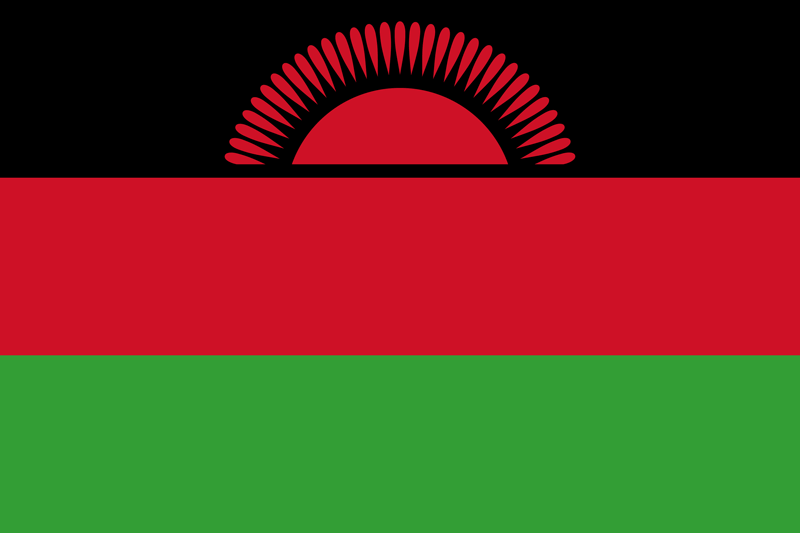
Our Member Association, Family Planning Association of Malawi (FPAM), is delivering healthcare through the support of WISH* in Lilongwe and Kasungu with a focus on young women and girls. A bespoke training programme supports community health workers on how to deliver youth-friendly healthcare through outreach to local communities, and especially young women.
Tanzania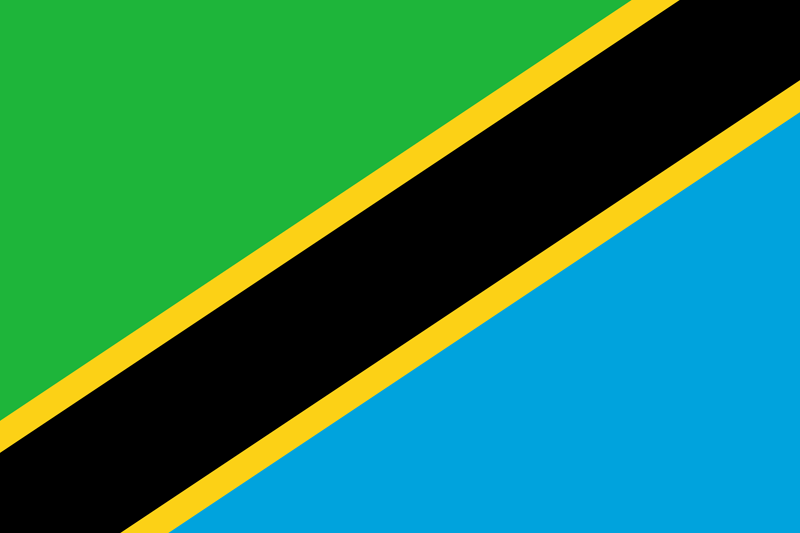
20-year-old Zahra Amri has been working with Chama cha Uzazi na Malezi Bora Tanzania (UMATI) since she was 13. Starting out as a Youth Action Movement (YAM) member, she then became a peer educator for young people and now works at UMATI’s Youth Center in Temeke district of Dar es Salaam as a Community Health Worker (CHW).
Uganda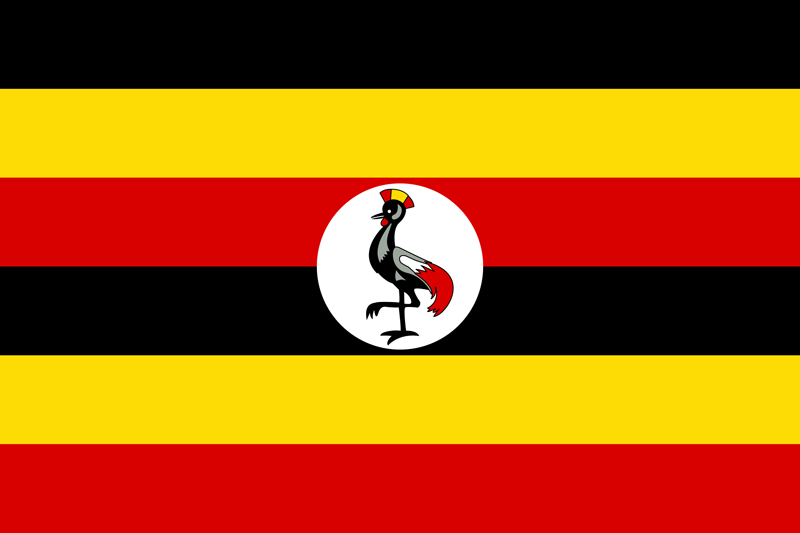
Maka is a satisfied family planning (FP) user from Uganda. She is a mother of eight children living in a polygamous home shared with three co-wives who are raising a total of 23 children in the household. She has been struggling to take care of her eight children with no financial support from her husband. She heard about FP by Women’s Integrated Sexual Health (WISH) Village Health Teams (VHTs) who are trained by WISH humanitarian partner International Rescue Commission, (IRC) and was referred to Koro Health Centre III for further information and services. Maka received comprehensive counselling after which she made an informed choice and settled for tubal ligation.
World Contraception Day
Today, the world marks World Contraception Day (WCD). Launched in 2007, WCD is a global campaign which envisions that every pregnancy in the world should be wanted. It generates awareness of the different kinds of contraception that women can use.
Mozambique
Rostina Pedro Cumbane is a 35 year-old person living with disability (PLWD) and single mother of three children aged 8, 10 and 13 years. She lives in Maputo, Mozambique’s capital city, and plaits women’s hair in a room in her house - her family’s sole income.
Ethiopia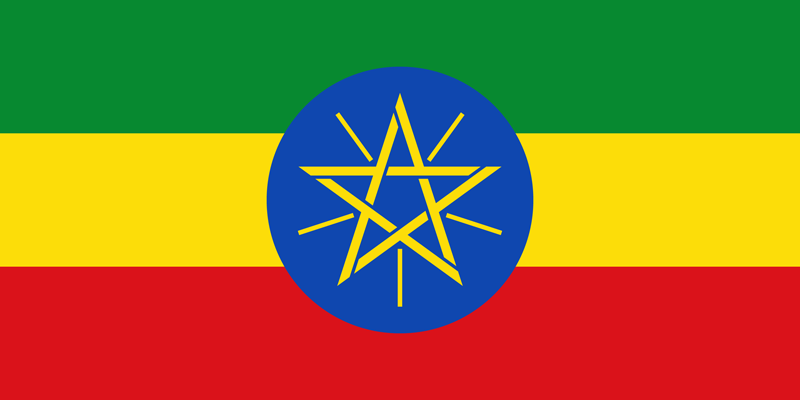
The IPPF-led Women’s Integrated Sexual Health, W2A programme, under the banner ‘Leave No One Behind’ offers quality integrated and inclusive family planning/sexual reproductive health (FP/SRH) services to marginalized and hard to reach populations such as the poor, youth under 20 and people with disability. The programme enhances disability inclusion efforts to deliver high-quality integrated sexual reproductive health and rights (SRHR) services and counselling by working closely with consortium partners to tackle stigma and improve healthcare access for people living with disabilities (PLWDs) both at the national and community levels in the W2A countries.
Pakistan
An estimated 64% of Pakistan’s population is under the age of 30, and the country now has more young people than it has in its history. In light of this, it is important that policies are in place that can effectively respond to the needs of Pakistani youth.
when







